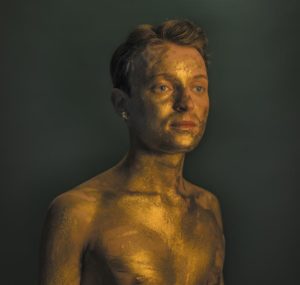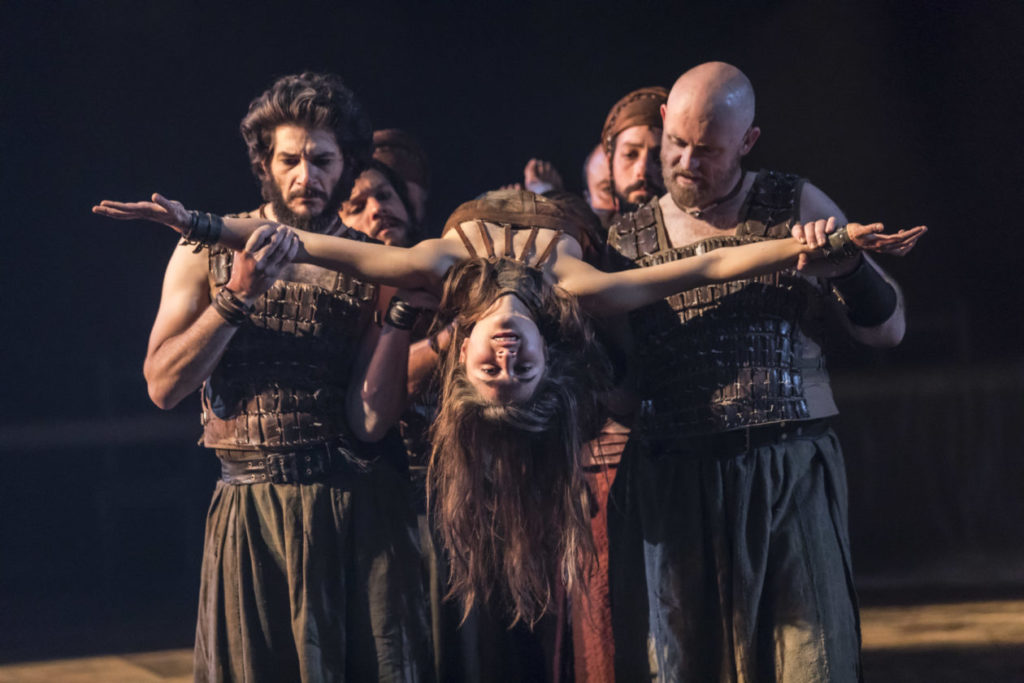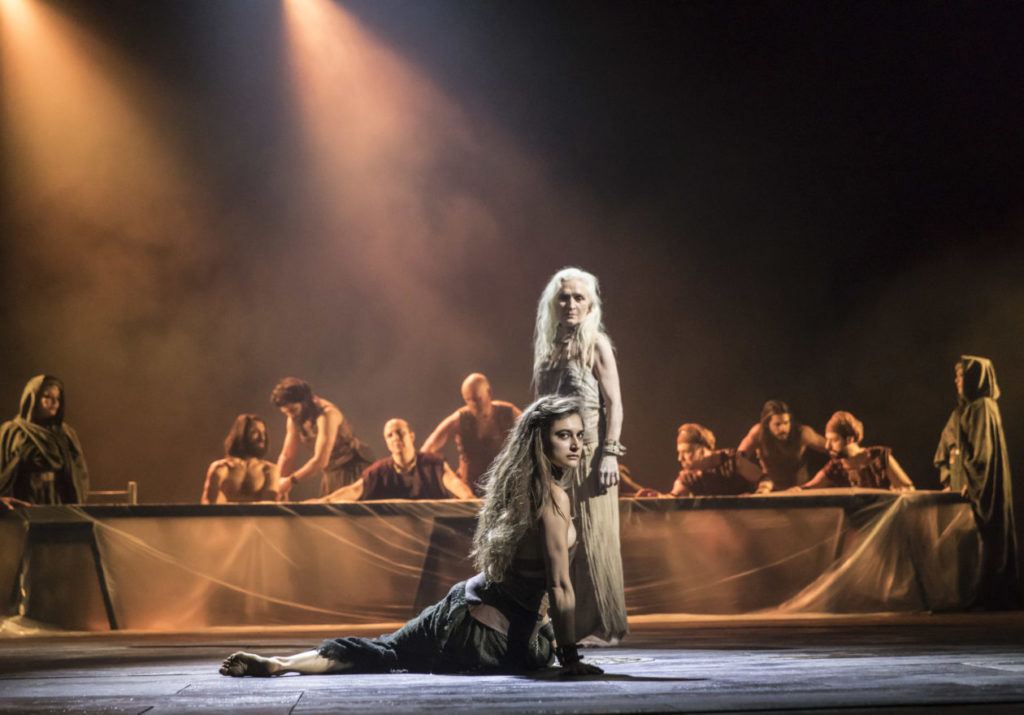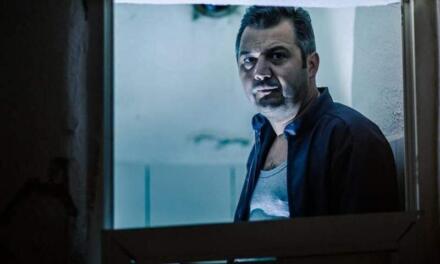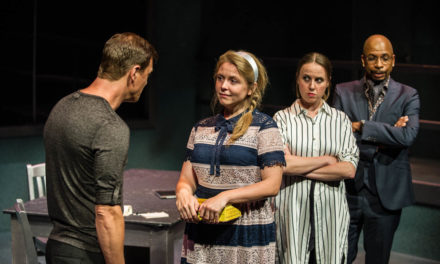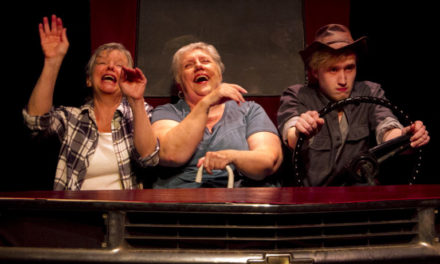Salomé: one of the most dangerously seductive female figures ever, often considered the original femme fatale. Yet in a new production of Oscar Wilde’s 1891 play at the RSC, Salomé is to be played by a man.
It could be a controversial casting move – taking away an all-too-rare female lead from an actress – but director Owen Horsley’s production has a celebratory narrative of its own. Artistic director Gregory Doran wanted to mark this year’s 50th anniversary of the decriminalisation of homosexuality in England and Wales, and the pair talked about staging Wilde – who has never been put on by the RSC. Salomé, with its forbidden and unfulfilled desire, seemed like the obvious choice.
The play – banned for many years for its use of biblical figures – features plenty of transgression, even if played “straight.” The ruler Herod lusts after his stepdaughter, Salomé, who is infatuated with a beautiful young prophet, Jokanaan (John the Baptist) who refuses her sexual advances. When Herod promises Salomé that she can have whatever she desires if she will only dance for him, she demands revenge: “Give me the head of Jokanaan.”
Wilde’s sexuality
“I do feel it reflects Wilde’s sexuality. Salomé is really different from Wilde’s other work, and being somehow about unfulfilled desire, and the struggle within that, it seemed like the right play to do,” says Horsley.
“Initially I thought I’d really like to explore casting, to see it very directly through a gay lens. But then my journey continued, and [I decided] I’d like to explore where we are now in terms of sexuality – how the conversation is much more about gender identity and non-binary [identities]. So maybe we cross-cast it, but we don’t determine the gender so much.”
Salomé will be played by Matthew Tennyson, but they’re keeping the female pronouns and the slight, youthful-looking 29-year-old will wear a dress. But it’s not going to be a male impersonation: the show will open up the notion that Salomé’s sexually charged femininity might be one part of a gender-fluid identity.
“I don’t feel like I’m being particularly fey or camp; it’s about exploring the male and female that everyone has inside them,” suggests Tennyson. But re-casting Salomé as a feminine man will, of course, send new currents of same-sex attraction zipping across the stage.
While both director and star acknowledge concerns about taking away a female part they argue that finding a gay story within Salomé is also a valid choice. “I hope it can be seen as part of the solution: it’s so vital that people see men in a different way as well as seeing women in a different way. I think we’re all heading in the same direction,” says Tennyson.
Celebrating gay rights
“Oscar Wilde was committed for gross indecency for being a gay man and now you’re allowed to be openly gay and to tell these stories in a direct way. It’s important to celebrate that, to honour his legacy, and how far we’ve come.”
“Gender fluid” has become something of a voguish term in recent years – are they worried about being perceived as trying to make the play too modern, even modish?
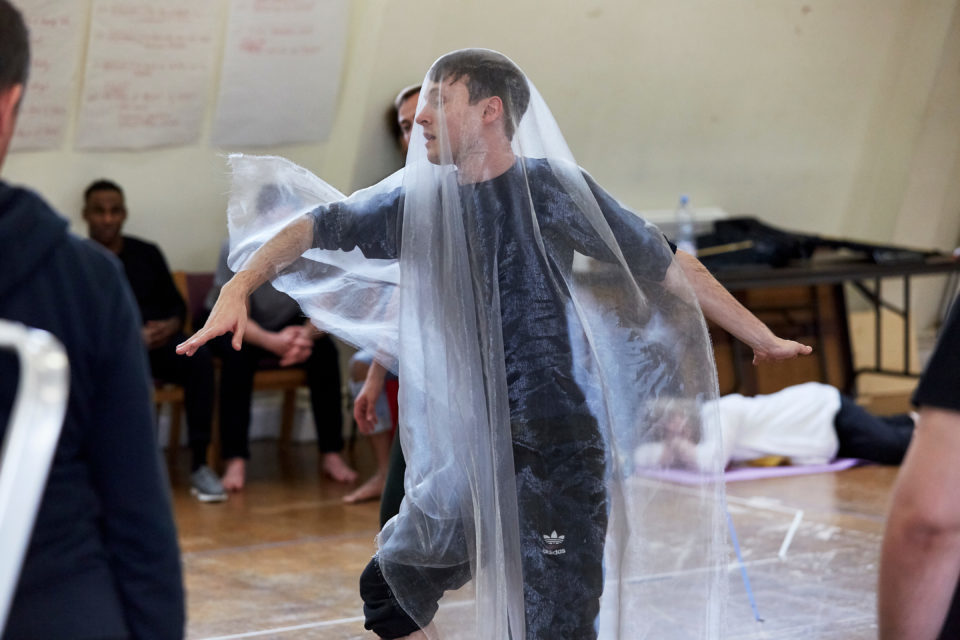
Matthew Tennyson performing Salome’s dance of the seven veils in rehearsal at the RSC. Photo: Richard Lakos/ RSC
“An important thing about doing any play that has been done before is allowing the audience to see it with new eyes,” suggests Horsley. “It’s just about opening the play up again. Because it was written by Oscar Wilde, it doesn’t feel like we’re crashing against it – there’s something in there to be found.”
“There are so many parallels I could draw with modern gay life and all these gender issues, but for me it’s just about doing the play as truthfully as possible,” adds Tennyson. “I don’t want to try to crowbar in something that isn’t there.”
This “bold” casting choice should match the inherent “boldness” of Wilde’s play, which is written with a strange, heightened poetry that’s a long way from his social comedies. There must be something about this story that is particularly ripe for reinvention: another radical version of Salomé is currently running at the National Theatre. Yael Farber’s take – reworking the myth rather than adapting Wilde’s text – reframes Salomé as a political figure fighting for freedom in an occupied land. Her violent actions are intended to prompt a revolution.
Farber has said in a recent interview that she wants to wrest the story away from Wilde’s “misogyny”, to give Salomé agency rather than having her commit an act of lascivious vengeance. Both Horsley and Tennyson reject the stereotype of Salomé as merely a femme fatale, however. The famous Dance of the Seven Veils she does for Herod – which here will be to music by queer artist Perfume Genius, performed by a live band – becomes a joyous sexual awakening, as well as being the moment when she becomes aware of the power that sensuality affords her over the male ruler.
“Salomé is so wonderful as a character because [we see] the exact moment in her life where her sexuality is blossoming,” says Horsley. “But when that’s a sexuality that has an ambiguity to it, it can also be very threatening and scary, so it’s [about] what it does to the people around Salomé as well.” They want to explore the fear aroused when an individual discovers their sexual agency – especially if that is seen as a threat to an established patriarchal order, as it certainly is within Wilde’s play.
The cross-casting, allowing the suggestion of forbidden same-sex desire too, will probably ramp this up. Herod is, Horsley points out, a leader whose own power is crumbling. And into this moment of masculine insecurity comes a gender-fluid, sexually ambiguous figure of great beauty and seduction… Ultimately, the production is digging down into those classic twinned human concerns: sex and death. Salomé explores how erotic power can be a dangerous, intoxicating, even violent thing.
“In this play, there is no separation of desire and fear,” says Horsley. “They’re always in bed together.”
Salomé is in rep at National Theatre, London to 15 July (020 7452 3000); the RSC’s version is at the Swan Theatre, Stratford-upon-Avon, 2 June to 6 September (01789 403493)
This article was originally posted at https://inews.co.uk. Reposted with permission. To read the original article, click here.
This post was written by the author in their personal capacity.The opinions expressed in this article are the author’s own and do not reflect the view of The Theatre Times, their staff or collaborators.
This post was written by Holly Williams.
The views expressed here belong to the author and do not necessarily reflect our views and opinions.


